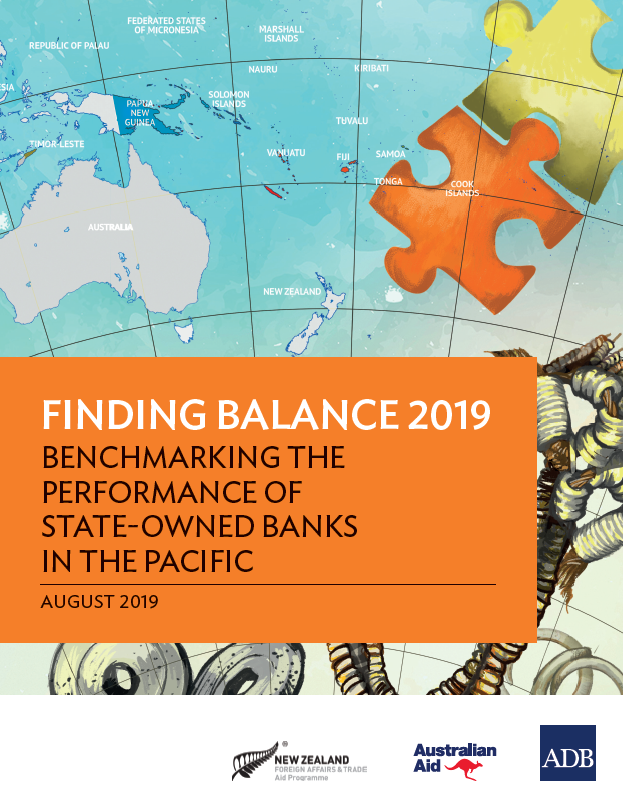Finding Balance 2019 - Benchmarking the Performance of State-Owned Banks in The Pacific

State-owned banks, which are present in almost every Pacific island country, can play an important role in channeling finance to the private sector—and in some countries, they already do. As is the case with state-owned enterprises (SOEs) more broadly, the effectiveness and sustainability of state-owned banks depend on their ability to operate commercially and provide services on a nondistortionary basis. In this regard, Pacific state-owned banks are no different to the more than 250 state-owned banks around the world; their core challenge is to demonstrate additionality—that is, to provide financial services that would not otherwise be provided and do so profitably, or through their presence make their respective banking systems more competitive.
Despite their shared purpose, this study illustrates the heterogeneity of state-owned banks in the Pacific as well as globally. At the same time, it identifies the key feature of the most successful state-owned banks: a strict adherence to commercial principles. These banks demonstrate that a development mandate is not only compatible with commercial results, but that the sustainability afforded by operating commercially deepens development outcomes.
This is the sixth comparative study of SOE performance in the Pacific undertaken by the Asian Development Bank’s (ADB) Pacific Private Sector Development Initiative (PSDI), and the first to focus exclusively on state-owned banks. It reflects ADB’s commitment to increasing cooperation and sharing knowledge and best practices among its member countries, and advances the thought leadership on finance and SOE reforms that PSDI has provided over its 12 years of operation.



